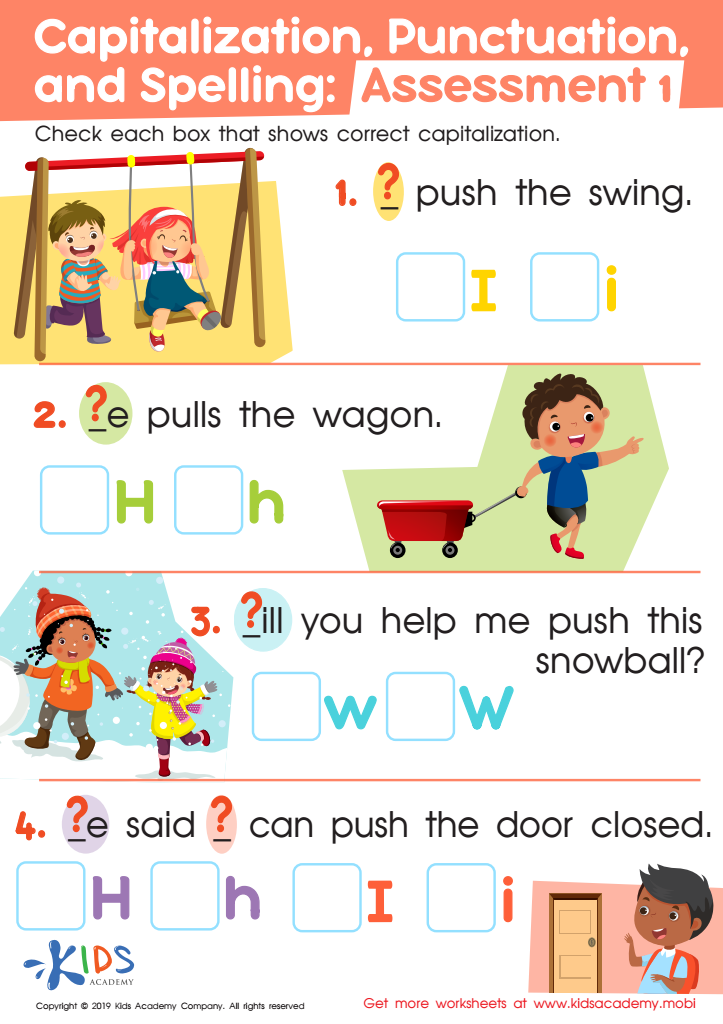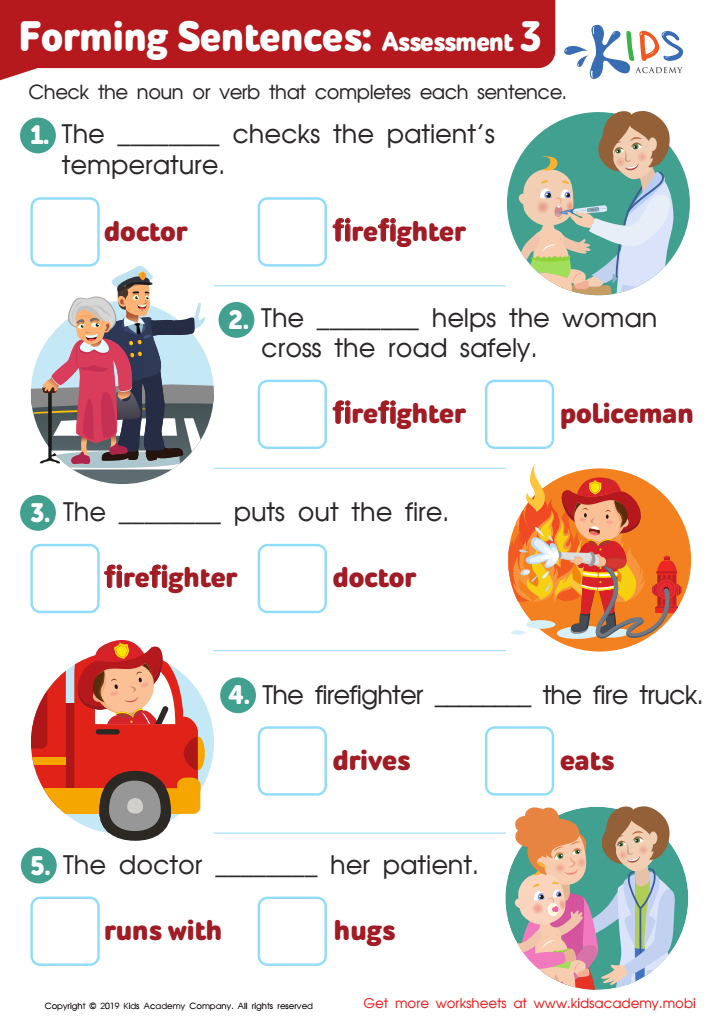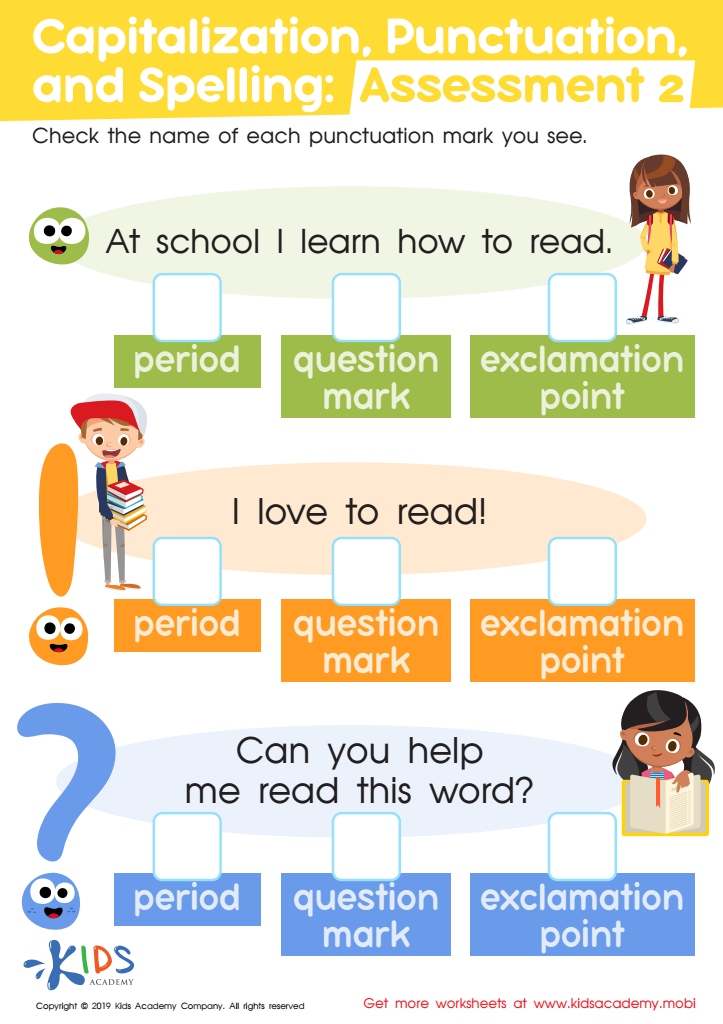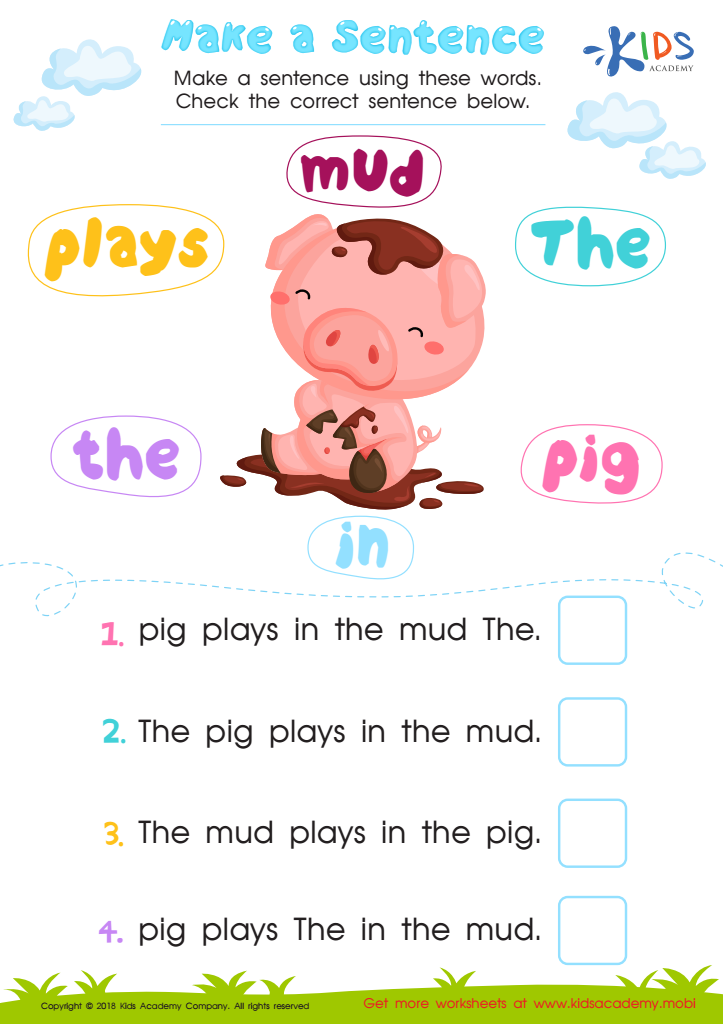Easy Writing worksheets activities for Ages 3-7
4 filtered results
-
From - To
Discover a treasure trove of easy writing worksheets designed specifically for children ages 3-7! Our engaging activities help young learners develop essential writing skills in a fun and interactive way. Each worksheet is carefully crafted to promote creativity, strengthen fine motor skills, and improve letter recognition. From tracing letters to simple sentence formation, these activities cater to various skill levels, ensuring every child can succeed. Perfect for both classroom and homeschool settings, our worksheets encourage a love for writing while providing valuable practice. Dive into our collection and make learning to write an enjoyable adventure for your little ones!


Capitalization. Punctuation. Spelling: Assessment 1 Worksheet


Forming Sentences: Assessment 3 Worksheet


Capitalization. Punctuation. Spelling: Assessment 2 Worksheet


Assessment: Make a Sentence Worksheet
Easy writing activities for children aged 3-7 are vital for several reasons that parents and teachers should prioritize. Firstly, these activities engage young children in early literacy development, laying a strong foundation for communication skills. Writing helps children express their thoughts, fostering creativity and critical thinking.
Furthermore, through simple writing exercises, children enhance their fine motor skills as they practice holding pencils and forming letters. This development is crucial not just for writing, but for their overall coordination and dexterity. Easy writing activities also build essential comprehension skills— children learn to associate sounds with letters and words, a foundational step in reading.
Additionally, these activities promote confidence. As children see their ideas taking shape through writing, they develop a sense of ownership in their work, encouraging them to share their stories and ideas. Such experiences are linked to positive self-esteem and academic engagement.
Incorporating easy writing in everyday routines can also strengthen the bond between parents, teachers, and children. Collaborative writing tasks, like creating a story together, can enhance communication and foster healthy relationships. Ultimately, by prioritizing easy writing activities, adults can significantly impact a child’s cognitive and emotional development, setting them up for future success.
 Assign to My Students
Assign to My Students














